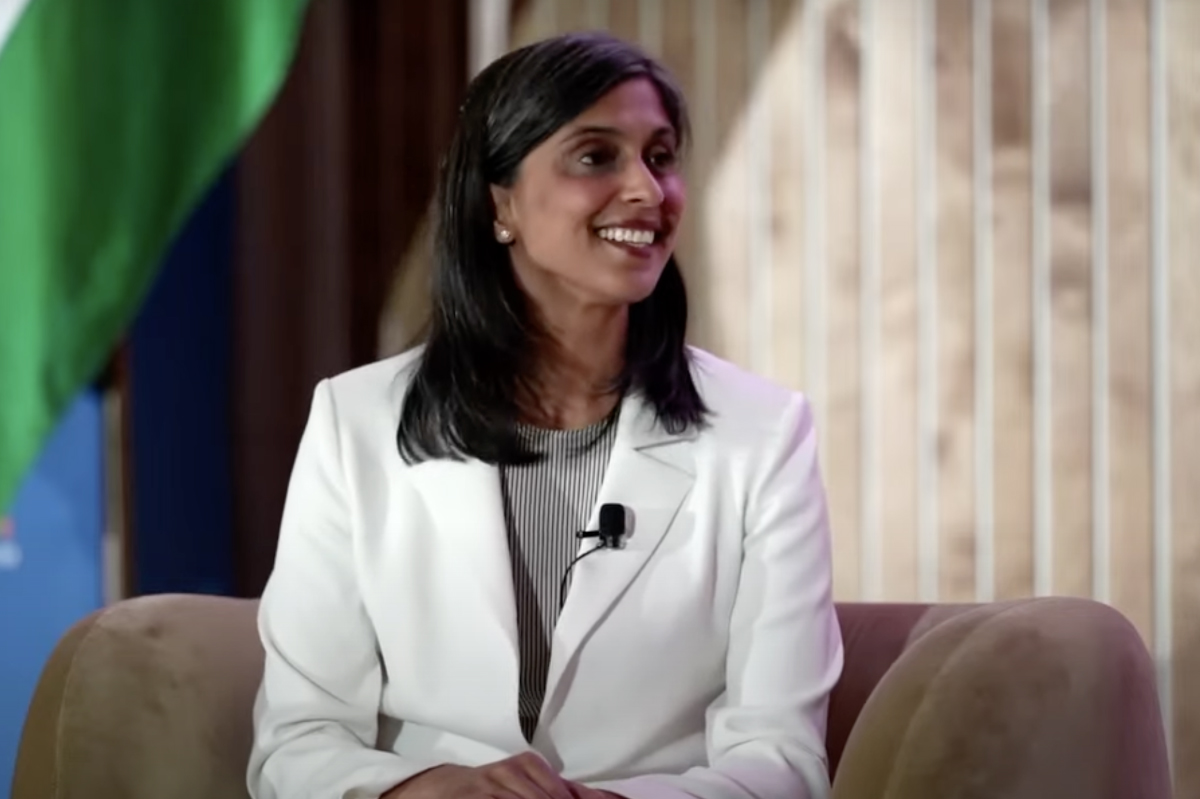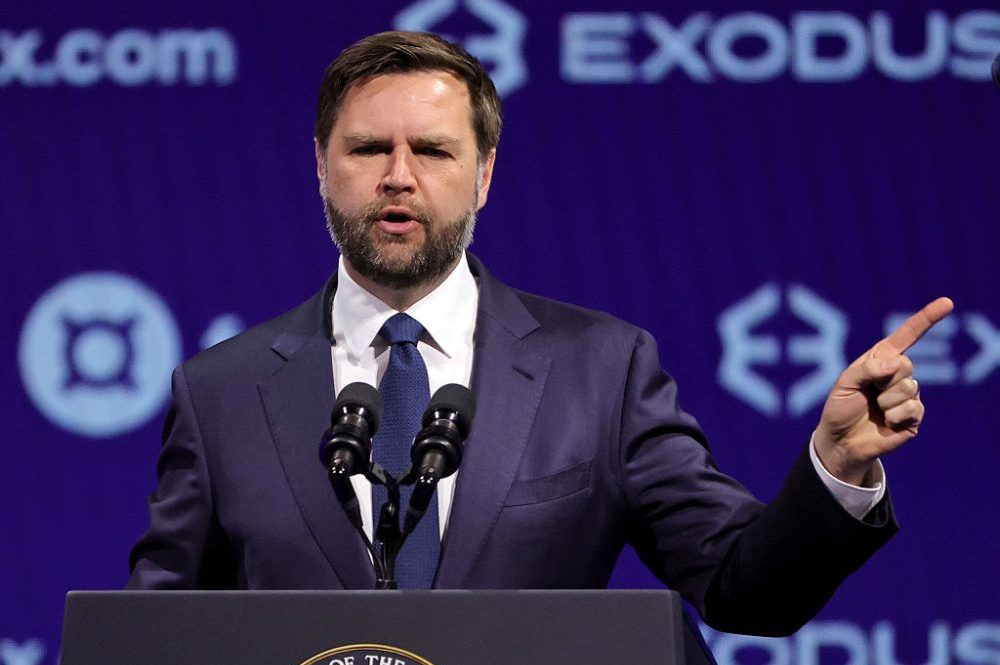In the world of American politics, 2010 feels like a very long time ago. The wave of Tea Party candidates swept into office in response to the overreach of Barack Obama belonged to a party that had as its champions the likes of George W. Bush, John McCain and Mitt Romney — all people who would ultimately be rejected by its nominee in 2016.
The Republican Party of 2010 nominated and elected a swath of candidates bent on changing Washington. They were elected in states as diverse as Kentucky, Florida, Wisconsin and Utah. And they represented a push designed to shift the party, to transform what it did in the capital. They advocated for change that would be long-standing, not just a brief change in personnel. Ink was spilled, books were written, a movement was born — and it was heralded by many as a sea change in American politics.
Yet looking back at that Tea Party wave of twelve years ago, it is hard to judge it as anything but a failure. It did not fundamentally change Washington. Its priorities did not shift the GOP conference in either house. And if the ultimate policy ramifications of this sweeping change amounted to little more than a brief financial sequestration, that says a great deal about how little impact the wave ultimately had on the Republican Party.
No Tea Partier has been nominated for president, despite several running. And it’s dubious in the extreme that fiscal responsibility has ever become central to Republican politics or policy.
So what can be made of the attempts to replicate the Tea Party in the here and now? Because, in many ways, the 2022 slate of candidates represent something similar. They are outsiders, never having held elective office. They come from the worlds of business, media, sports and Silicon Valley. They say they are bent on changing the Republican Party — but is that anything deeper than lip service to a populist idea?
Two Senate candidates in particular capture this dynamic. J.D. Vance and Blake Masters both won their primaries, in Ohio and Arizona respectively, largely due to financial backing from Silicon Valley tech billionaire Peter Thiel. They are in many ways the two candidates that most represent a possible shift within the Republican Senate conference. With a sense of ideological mission and a powerful anti-establishment backer, they could change Washington in ways many other candidates this cycle seem unlikely to.
Yet their hopes of election in November depend in large part on the same Republican authorities they seek to defy. Mitch McConnell has weighed in with millions of dollars to try to elect Vance in what most consider to be a Republican-friendly seat in Ohio, but he has denied the same funding for Masters in Arizona, where the race could prove more difficult (not least because it’s yoked to a particularly volatile and radical gubernatorial nominee).
To understand this Senate cycle you need to understand that the majority McConnell wants may not be the majority he gets. McConnell played a limited role in the Senate primaries this time, holding back from the kind of activism that has backfired for him before. He deemed it wiser to wait on the sidelines and allow former president Donald Trump to do his worst in one primary after another. Barring a few misfires, Trump ended up with the Senate field he wanted. (And he’d go some way to inconvenience or undermine McConnell, whom he despises.)
The problem for Republicans is that while the former president is willing to back candidates in nomination battles, he is not willing to put his money where his mouth is. Sitting on a massive war chest of small-dollar donations, Trump is unwilling to spend one cent to back his people. He helped win their Senate nominations in large part because he intends to spend money raised for them on his own 2024 presidential campaign — and this reality has left them high and dry.
Several recent Trump-dominated media cycles have also had major effects on fundraising: incidents like the raid on Mar-a-Lago have drawn small-dollar donors back to the former president when they might otherwise have given to Senate candidates. As a result, many campaigns find themselves underfunded, battered by contentious primaries and up against Democrats with significant financial resources. In this environment, they cannot help but turn to McConnell and traditional business donors who may have their qualms about Trump but are more than willing to donate to an effort to win back the Senate.
The real question is what kind of Senate that will be. If it is the Senate of Mitch McConnell’s choosing, it will include several new members who are perfectly willing to go along with his method of running the body with an iron fist. He is not interested in fundamentally altering or changing the way business, what little of it the Senate engages in, is done. But if others have their way after November, the next session’s conference will not be aligned with McConnell’s baby boomer way of doing things.
McConnell’s concern about his legacy is his animating dynamic. He would like very much to be remembered as a blockade against the Trumpian takeover of the GOP. But time and again his miscalculations about voter responses to the Trump movement have helped make him one of the most unpopular politicians in the entire country, as well as seeming out of step at a moment when Republicans are exhausted by the Swamp’s tendencies, distrustful of federal institutions of all kinds and frustrated with an inability to change Washington despite repeated efforts.
The November elections also seem likely to sweep out of power several Democrats who have been at the height of authority in their party for decades. But McConnell seems ready to hold on despite generational shifts in both parties; he clearly has no intention of heading for the exit anytime soon. Instead, he is likely to continue to assert his authority in ways that have led to years of frustration among the Tea Party generation and others.
Presumptive replacements have included Texas senator John Cornyn, who looks, as some might say, like he came from central casting, and South Dakota senator John Thune, whose primary attribute is being very tall. But Cornyn angered gun rights supporters with bipartisan legislation conservatives saw as giving Democrats a rare win on the issue, and Thune may lack the ambition for a role that is demanding and thankless.
The new potential McConnell opponent who has emerged this cycle is Rick Scott, a Florida senator and former governor who also happens to be one of the wealthiest members of the conference. He now heads the National Republican Senatorial Committee, from which he has aggressively published his own agenda, a policy proposal that earned him plaudits and backlash, and engaged in a series of agenda-setting polling efforts.
Scott seems very much of a mind to take McConnell’s role from him, and their animosity has played out in a surprisingly public way — in press conferences, interviews and obvious staff leaks to Politico and Axios. McConnell is already casting blame on Scott’s leadership of the cycle’s campaign methods and criticizing the candidates who have agreed with his more ambitious approach to 2022 — preferring, in classic establishment fashion, to stick to stealth campaigns that rely on external political dynamics instead of leaning into more controversial debates.
Should the Senate flip in ways that prove the wisdom of Scott’s approach, this fight could determine more than just who runs the Senate. It could also determine the positioning of the Republican Party as it relates to the former president and the agenda it puts before the American people in the coming presidential cycle.
Scott is not beloved by his fellow senators. But he is respected by them in ways that could be used to his advantage should he seek the majority leader position. All of this is moot if he is not capable of delivering a majority in November — a majority that would theoretically consist of a group of Republicans notable for their oddities and political inexperience: a Heisman Trophy winner in Georgia’s Herschel Walker; a TV physician in Mehmet Oz in Pennsylvania; a bestselling author in Ohio’s Vance; and a tech money man in Masters in Arizona.
The dynamics of these races vary wildly. Oz is up against the popular local politician John Fetterman, a Bernie Sanders acolyte with statewide experience as lieutenant governor. Walker is seeking to upset the incumbent, Revd Raphael Warnock, who ran as a bring-us-together pastor but has swung to the left in the Senate. Vance faces off against Ohio congressman Tim Ryan, who once had delusions of grandeur about taking his party in a more moderate direction. And Masters faces incumbent Senator Mark Kelly, about whom most people know little more than his biography as a former astronaut and the husband of gun-assault victim Gabrielle Giffords.
When the Tea Party wave came to Washington, the GOP initially resisted it. They feared the radicalism of these new populist outsiders with their pocket Constitutions and tricornered hats. But in time, the party figured out that it just needed to give the new radicals a few shiny objects and let them run wild: When they ran up against the obstacles that anyone could’ve predicted, well, that’s just the way DC works.
So Ted Cruz’s frustrated attempts to wage an Alamo-style battle against Obamacare hit all the barriers one would expect from a legislature that is best at doing nothing. And if the greatest casualty of the Tea Party era turned out to be John Boehner, the establishment GOP preferred Paul Ryan anyway.
What will make a difference this time around is if these new members become part of something in Congress itself, instead of falling prey to the lure of national politics. The most effective Tea Party senator is widely judged to be Utah’s Mike Lee. He has taken the reins of the Senate Steering Committee and can work with both sides of the establishment-insurgent dynamic. Lee, who vociferously opposed Donald Trump’s nomination, has since evolved into a capable ally of the Trumpian agenda. And as the Tea Party senator least likely to hold aspirations for the White House, he has been able to chart the party’s path on policy where others could not. If Walker, Oz, Masters and Vance represent a rejection of the traditional Washington ways of doing things, they must also recognize that the business of the Senate requires you to want to be a senator. This has proven too large a task for many who came before.
This collection of odd outsiders represents a group that could bring dramatic change to the way Washington works. But having been through this scenario before, it is impossible to look at the current lineup and expect anything different from what happened after 2010. In Washington, time and again, the Swamp drains you.
This article was originally published in The Spectator’s October 2022 World edition.

























